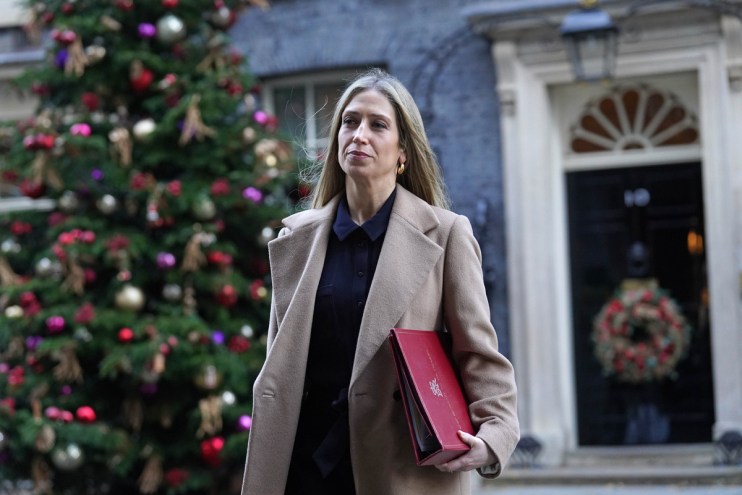Labour’s £28bn growth plan would see tax rises, Treasury minister argues

Labour’s plans to borrow £28bn to invest in decarbonisation and green energy would lead to tax rises, the chief secretary to the Treasury has argued.
Writing in the Times, Laura Trott criticised Labour leader Sir Keir Starmer and shadow chancellor Rachel Reeves’ promise to borrow £28bn a year by the end of the next parliament, which the party say will be invested in “jobs and energy investment”.
Funding for the measures would equate to a four per cent increase in income tax, six per cent on national insurance or a nine per cent rise in corporation tax, Trott suggested.
And Labour “need to come clean on which taxes they plan to raise,” she added.
It follows major green investment schemes by the US via the Inflation Reduction Act (IRA) and the EU under the European Green Deal, as economies aim to transition to net zero.
Reeves watered down the pledge this summer, moving the party from saying it would borrow to invest £28bn a year, to increasing investment over time to reach £28bn after 2027.
“No plan can be built that is not a rock of economic and fiscal responsibility,” Reeves told the BBC in June, adding: “I will never play fast and loose with the public finances.”
Ministers also insist Labour is committed to its fiscal rules, including to get debt falling as a share of GDP within five years, as it continues its bid to appeal to voters over the economy.
But Trott insisted the idea “ignores” the billions of private sector investment already going into the UK’s decarbonisation, and that our progress is “faster than any other G7 economy”.
And she stressed that the key question for Labour to answer “is how this will be paid for”, suggesting tax rises could be on the cards under a Starmer government.
“Unfunded spending plans are a risk to the economy,” she wrote. “Their ‘iron-clad’ fiscal rule to keep debt falling means this is a spending promise they can’t load on to the nation’s credit card.
“And without swingeing cuts to public services, spending reductions aren’t possible. That leaves them just one lever: tax. £28bn is more than we spend on the police. It’s more than half of the entire school’s budget.”
Labour have been contacted for comment.
